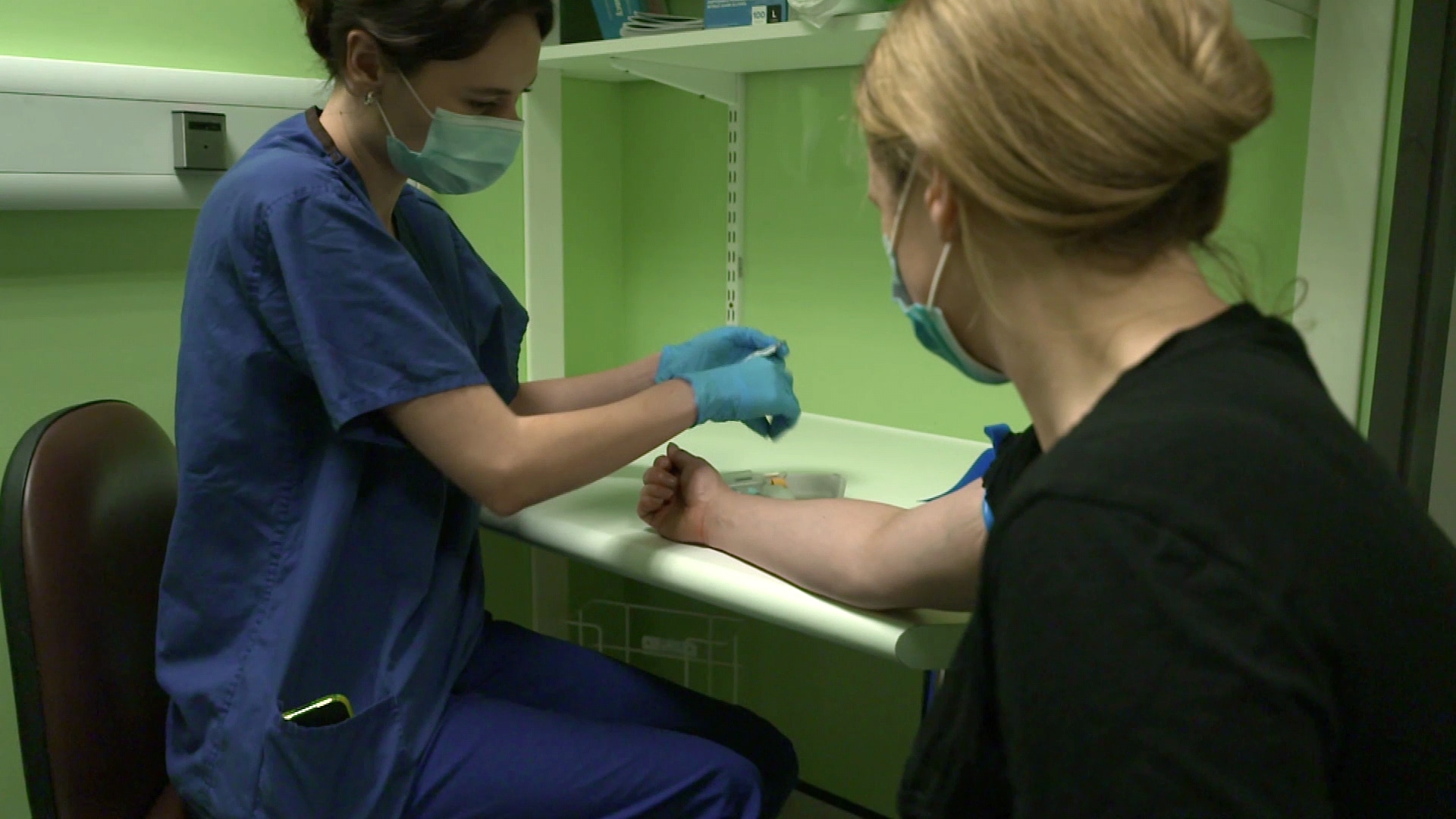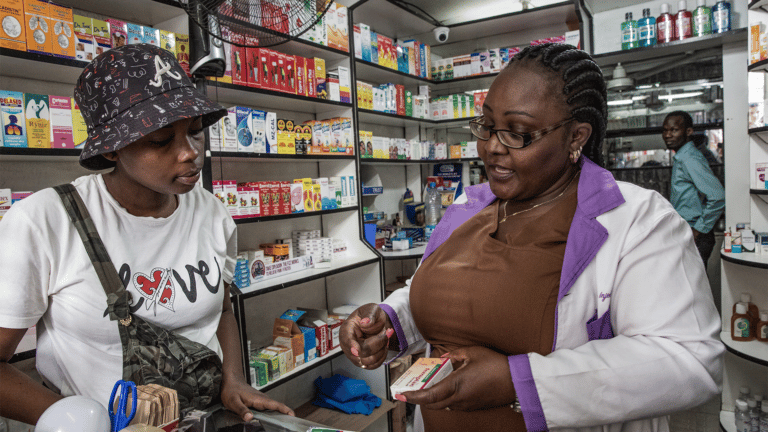The end new cases of HIV, we need everyone to know their HIV status.
In London, central Manchester, Brighton and Blackpool, more than 360 people have been newly diagnosed with HIV or re-engaged in care in just nine months. This has been made possible by the expansion of opt-out HIV testing in emergency departments following successful outcomes delivered by the Foundation’s Zero HIV Social Impact Bond in London, and thorough evidence-based recommendations from the HIV Commission.
But we can’t stop here. We have far more people to reach if we’re to make our goal of ending new cases of HIV by 2030 a reality. That’s why we’re backing an open letter to the Public Health Minister and NHS England to extend opt-out testing to 40+ new hospitals in 32 areas.
Make zero new HIV infections a reality.
Anne Aslett, Chief Executive of the Elton John AIDS Foundation, joins names from leading charities in the fight against HIV, Hepatitis B and Hepatitis C to call on Public Health Minister Neil O’Brien and NHS England Chief Executive Amanda Pritchard to fund testing for blood borne viruses in emergency departments across the country.
In an open letter launched on January 19, 2023, we’re asking that the Government’s successful opt-out testing programme is extended to all areas with a high prevalence of HIV – from Birmingham to Portsmouth, and Derby to Peterborough.
Add your voice to the call to make every contact count – sign our open letter today.
“The Foundation’s world-first HIV Social Impact Bond (SIB) showed us the importance of opt-out HIV testing in emergency departments and GP practices, particularly in finding people who are not using other services that would provide an HIV diagnosis” said Anne Aslett, CEO of the Elton John AIDS Foundation. “The NHS’s 100 Days report clearly demonstrates the value of expanding this service and testing for other blood born viruses at the same time. I’m joining leaders in calling for more HIV opt-out testing in areas of high HIV prevalence across the country so that we can save lives, save money, and see an end to AIDS in the UK.”
Open letter to the Government
Dear Neil O’Brien and Amanda Pritchard,
The government has set ambitious targets to end new HIV transmissions by 2030 and eliminate hepatitis C in England by 2025. To do this, testing for HIV and hepatitis must become routine across the country. We are writing to ask that you extend the government’s opt-out HIV and hepatitis testing programme to all areas of ‘high’ HIV prevalence outside of London.
Opt-out blood borne virus testing is saving lives and saving money. In London, central Manchester, Brighton and Blackpool, more than 360 people have been newly diagnosed with HIV or re-engaged in care in just nine months. They can now access effective treatment that means they can live a healthy life and can’t pass on the virus. Many were already unwell but hadn’t been tested before.
In the same time, 727 people have been diagnosed with Hepatitis B and 315 with Hepatitis C. An estimated 40-50% of those with viral hepatitis are undiagnosed – we must find these people and ensure they can access the care they need. Opt-out testing is doing just this, on a remarkable scale.
It’s also not a coincidence that people diagnosed in emergency departments through opt-out testing are more likely to be Black African, women or older people – groups who are at higher risk of being diagnosed late. 45% of people diagnosed with HIV in the first opt-out testing pilots were of Black African, Black Caribbean or Black ‘other’ ethnicity, more than twice as many as the nationwide average of 22%. A further 35% were women and 10% aged 65 or over. This is because opt-out testing is finding people who are less likely to access a sexual health clinic or to be offered a test if they do go.
That’s why we can’t stop here. Areas outside of London that are classed by the UK Health Security Agency as having a ‘high’ HIV prevalence – including Birmingham, Portsmouth, Derby and Peterborough – should also benefit. Opt-out testing more than pays for itself, but these areas need funding to get started. An estimated £18 million is needed to expand opt-out blood borne virus testing to just over 40 emergency departments in 32 local authority areas.
In the first 100 days, the programme in the highest prevalence areas has so far cost £2 million but saved the NHS an estimated minimum of £6-8 million in care costs. It is also relieving pressure on other parts of the health service. In fact, in Croydon University Hospital, when they first started opt-out testing the average hospital stay for a newly diagnosed HIV patient was 34.9 days. After two years of opt-out HIV testing, the average stay is now just 2.4 days.
We could be the generation that ends new HIV transmissions and eliminates Hepatitis C in England. We have all the tools we need and we know what works. We urge you to seize this opportunity and make the funds available to make opt-out testing available in more areas.
Yours sincerely,
Ian Green, Chief Executive, Terrence Higgins Trust
Anne Aslett, Chief Executive, Elton John AIDS Foundation
Deborah Gold, Chief Executive, National AIDS Trust
Pamela Healy, Chief Executive, British Liver Trust
Rachel Halford, Chief Executive, Hepatitis C Trust
Sophie Strachan, Sophia Forum
Karen Skipper, Chief Executive, Spectra
Christine Ansell, Chief Executive, Wandsworth Oasis
Liz Foote, Chair, NHIVNA
Tom Doyle, Chief Executive, Yorkshire MESMAC
Gavin Brown, Chief Executive, Trade Sexual Health
Matthew Hodson, Executive Director, NAM aidsmap
Rami Ghali, Chief Executive, Brigstowe
Aydin Djemal, Chief Executive, BHA for Equality
Monty Moncrieff MBE, Chief Executive, London Friend
Sarah Macadam, Chief Executive, TVPS
Amanda Ely, Chief Executive, CHIVA
Pip Gardener, Chief Executive, Kite Trust
Professor Yvonne Gilleece, Chair Elect, British HIV Association (BHIVA)
Dr Claire Dewsnap, President, The British Association for Sexual Health & HIV (BASHH)




